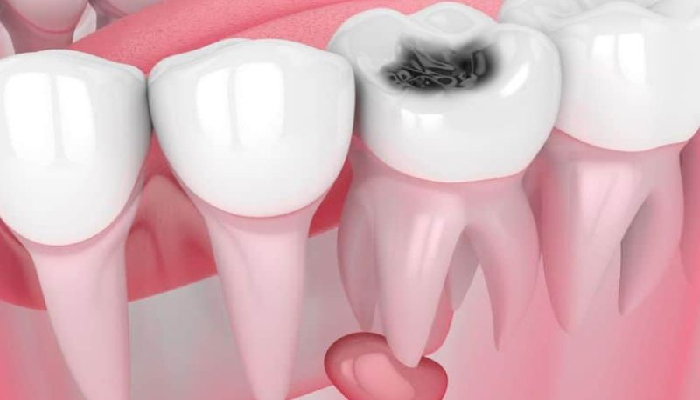How long until a tooth infection kills you

How long until a tooth infection kills you An untreated toothache may seem like a minor problem. But the truth is that small infections can be bad news and spread to other parts of the body. The presence of a dental infection indicates that bacteria have migrated to the soft tissues and are damaging them.
If this condition is treated early, the body is able to heal itself. On the other hand, untreated infections can get worse, and eventually the immune system can no longer keep up.
Can tooth decay kill?
If you’re wondering How long until a tooth infection kills you a toothache can last, the first step is to understand how it can spread to other parts of the body. If bacteria enters the teeth and reaches the soft tissues in the center of the tooth (called the pulp), an infection develops.
Over time, the disease can worsen, causing scarring around the affected tooth. This pus is a pocket of infection and pus and will continue to get worse and cause serious symptoms such as pain, toothache, and others.
Years ago, before the invention of modern dentistry, dental disease was the leading cause of death. In fact, in 1908, dental disease accounted for 10 to 40 percent of all deaths. These figures are quite surprising, especially since deaths due to dental diseases are rare in modern, developed societies.
Now that we have made great advances in dental knowledge and treatment, it is no longer possible for a person to die due to tooth decay. People may ask, Does it kill a tooth? The answer is that it is very difficult because there are currently treatments available.
When can a dental infection be life-threatening?
How long until a tooth infection kills you it take to kill a toothache? A better question to ask is: How long does it take for dental disease to reach the heart? Just because you have a dental disease does not mean your health is in danger. But if the disease becomes septic and/or spreads to the heart, it can affect major organs and cause serious health problems that can lead to death.
How can it kill a tooth? The potentially fatal consequences of untreated tooth decay include the following:
- Sepsis: the spread of an infection in the body causing a serious reaction.
- Necrotizing fasciitis is a widespread infection that begins to kill soft tissues in the mouth and throughout the body.
- Mediastinitis: inflammation of the lining of the lungs that can prevent breathing.
- Endocarditis: inflammation of the lining of the heart.
- Bleeding: The infection can cause bleeding, especially from the walls. Because these clots are close to the brain and eyes, they can cause serious complications.
- Brain abscess: The spread of a brain infection can cause pus to build up in the brain.
- Osteomyelitis is a bone infection that can progress.
Patients do not always have these dental problems. However, doctors and dentists look for signs and symptoms if the disease worsens and affects other parts of the body.
Risk increases complications
Remember that some patients have certain conditions that increase the risk of serious dental disease. If you experience any of the above problems, it is very important to see a dentist or doctor immediately.
- Age: Older people are at greater risk of tooth decay and serious, life-threatening problems. Adults develop their symptoms within a short period of time.
- Diabetes: People with diabetes have other health problems, including severe tooth decay that can lead to death.
- Immune function: Patients with weakened immune systems have difficulty fighting infections. As a result, the risk of complications from toothache may increase.
- Malnutrition: The entire body weakens when it lacks nutrition, making it difficult for the body to defend itself against diseases and related problems.
How long does it take to kill a toothache?
If you’re wondering How long until a tooth infection kills you it takes for a tooth to die, it’s important to understand how the disease begins and how it progresses over time. Initially, there is an eruption of the dental bone. As the cavity progresses, the scar may develop within a few months. It takes a short time for the enamel to reach the pulp of the tooth.
However, this process can happen quickly if there is an injury or tooth decay. The fragile surface of the tooth allows bacteria to move quickly across the surface. Therefore, toothache is very common after a toothache.
As the lesion grows, you may notice swelling around the affected tooth. This stage of dental infection can last for weeks or months before the patient needs emergency dental treatment. If the virus is left untreated for a long time, it may spread to other parts of the body.
When the disease begins to spread to the brain, heart, throat, etc. Death can be rapid if treatment is administered, even within a few days. However, many people seek timely dental treatment and care, and medications can be used to prevent the disease before it becomes fatal.
How do you know if the tooth is infected with blood?
If the infection spreads through the blood, it is called sepsis. This condition can be very serious and is the main cause of toothaches. But be aware that sepsis after a bacterial infection is rare. In this case, the medicine can be dangerous if used incorrectly.
What are the risks of getting sepsis if you have toothache? The risk of this problem is greatly reduced if the toothache is treated early. If dental disease is left untreated for a long time, the chances of sepsis are high. Therefore, early detection and treatment are essential to preventing this serious systemic disease.
There are two methods for treating serious dental diseases.
If you experience severe toothache, your dentist may recommend antibiotics as soon as possible. Depending on the severity of the disease, these medications are given as oral or intravenous pills to speed up the distribution of the antibiotic into the bloodstream.
Antibiotics can stop the infection, but you can also treat the underlying cause: a toothache. If the tooth is healthy, the dentist may recommend root canal treatment. This treatment eliminates pain and damaged areas, including the pulp and soft tissues between the bones. Next, restorative treatment is used to seal the tooth and restore its function (usually with a crown).
In some cases, the tooth cannot be repaired, and the dentist may recommend its extraction. Treatment is the main goal. Although it is not advisable to extract a tooth, sometimes it is necessary to treat the disease and prevent it from spreading to other parts of the body.
Ask the Dentist: How long until a tooth infection kills you?
How long until a tooth infection kills you Although a dental emergency can take weeks or months to develop and spread to other parts of the body, you don’t have to worry about delaying dental treatment. If you know you have a dental problem, it is important to see a dentist as soon as possible to avoid complications.
The best way to maintain a healthy smile is to use a preventative approach with a dentist. Regular dental checkups are an important step in detecting potential problems early, helping to prevent serious dental problems that can lead to serious health problems or even death.
How long until a tooth infection kills you At Dental, we offer a variety of dental services that your family needs. Find out more and make an appointment at the office nearest you. We are always available to answer your questions and give you advice on general dentistry.
Related Post,
Tooth Crowns Before and After
Pediatric emergency dentist near me beach town kids dental



